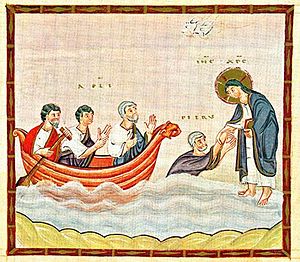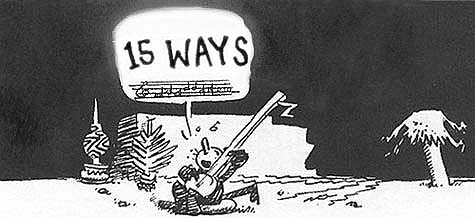 Reading Jesus the Healer by Stevan Davies alongside Constructing Jesus by Dale Allison is an interesting exercise in chiaroscuro comparisons.
Reading Jesus the Healer by Stevan Davies alongside Constructing Jesus by Dale Allison is an interesting exercise in chiaroscuro comparisons.
Both agree on the nature of circularity at the heart of historical Jesus studies. Davies begins with a quotation from E. P. Sanders:
In regard to Jesus research E. P. Sanders correctly observes, “There is, as is usual in dealing with historical questions, no opening which does not involve one in a circle of interpretation, that is, which does not depend on points which in turn require us ot understand other [points],” and he insists that “one must be careful to enter the circle at the right point, that is, to choose the best starting place.” The best starting place, it follows, is one that is historically secure with a meaning that can be known somewhat independently from the rest of the evidence. It further follows, as he rightly says, that one should “found the study on bedrock, and especially to begin at the right point.”
In the field of Jesus research, however, one person’s bedrock is another person’s sand. I cannot honestly think of a single supposed bedrock event or interpretive stance that somebody has not denied. Nor, to my knowledge, are there any two constructions of the “authentic” sayings of Jesus that are identical. One might compile a short set of parables, proverbs, and aphorisms that are universally conceded to be from Jesus, but they will be that set that conveys the least inherent meaning . . . and where one can go from there I am not at all sure. (p. 43, my bolding)
Davies opts, then, to embrace as his bedrock two details upon which “scholars agree almost unanimously”: that Jesus was believed in his time to have been (1) a prophet and (2) a healer and exorcist. Continue reading “It all depends where one enters the circle”






